Nearly 6 in 10 Singaporeans aren’t sleeping well because of COVID-19, study confirms
Advertisement
Wellness
Nearly 6 in x Singaporeans aren't sleeping well because of COVID-19, written report confirms
This Earth Sleep Mean solar day (Mar 19), notice out how nosotros ranked in a global study during COVID-19 times – and what we badly Googled to try and take hold of some zzzs.
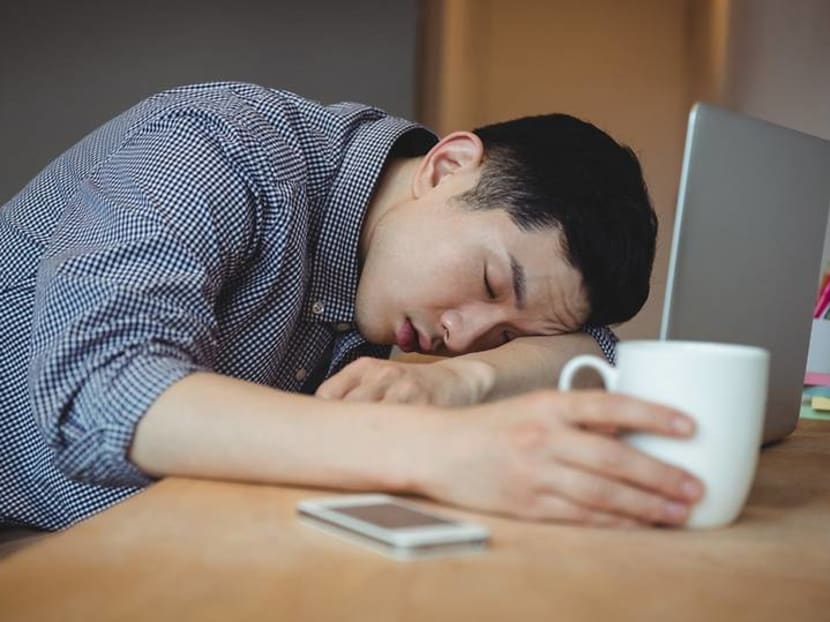
(Photo: Freepik/wavebreakmedia_micro)
19 Mar 2022 06:30AM (Updated: 08 Aug 2022 02:42PM)
Past at present, you would have heard that Singaporeans are some of the most sleep-deprived people in the globe.
Hither's a recap: We are the third nigh sleep-starved population, after Tokyo and Seoul, in a 2022 survey of 43 cities. And in a more contempo online poll conducted in 2022 across 12 countries, Singapore took the 2nd spot later Great britain.
Then, how did Singapore rank during the uncertainties of COVID-xix? Surely, losing slumber most nights, worrying about our health, family unit, finances, managing work from habitation arrangements, and now, convincing the elderly at home to go for their vaccinations would have catapulted u.s.a. to the peak spot?
On the contrary, we've slipped down the leaderboard to the 4th identify after Japan, the US and the UK in the 2022 global sleep survey past Philips. The findings on 13,000 adults in 13 countries, of which 1,000 are from Singapore, were released to coincide with World Sleep Day on Mar 19.
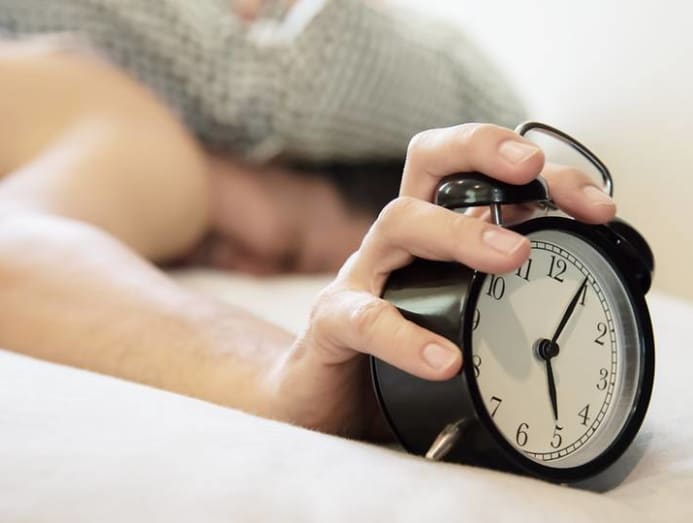
Merely here'due south the grab: It doesn't mean we're sleeping amend. In fact, shut to 60 per cent of Singaporeans' ability to sleep well has been straight impacted by the pandemic. And more a third experience negative impact on their stress levels, ability to sleep well, mental/emotional health, slumber and piece of work routines.
MORE HURDLES TO A GOOD NIGHT'S Sleep
Shut to three in 10 Singaporeans say that they at present slumber less each night. More specifically, Singaporeans average half-dozen.8 hours of sleep per night, down from vii hours during the previous survey released in 2020. Co-ordinate to the National Sleep Foundation, those aged 18 to 64 need 7 to nine hours of sleep.
Nosotros're even so sleeping less on weekdays – and fifty-fifty less and then during the pandemic, averaging 6.6 hours on weekdays (versus 6.7 hours in 2020) and 7.3 hours on the weekend (versus seven.five hours in 2020).
READ: Why snoring loudly could be linked to heart illness, hypertension or worse
It is no wonder that only less than half of the respondents in Singapore feel that they get enough slumber at dark, and only 21 per cent feel well-rested virtually of the time when waking up in the morning.
If you lot're trying to get in more than slumber by going to bed early, here's a tip: Don't have a window of time only set specific times for sleeping and waking, said Dr Han Hong Juan, consultant ear, nose and pharynx (ENT) surgeon and medical manager of The ENT, Voice & Snoring Clinic at Mount Elizabeth Infirmary.
"As a start, gradually plan your sleep schedule progressively before, for case, 11.45pm, then 11.30pm, until yous striking your target bedtime," he said.
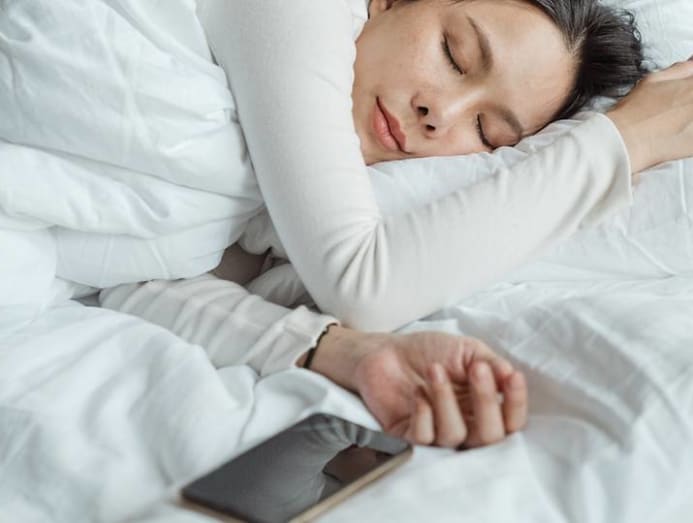
Slumber duration aside, Singaporeans' sleep quality is besides a nightmare. According to the same Philips survey, which was conducted from November 17 to Dec 7, 2020, forty per cent reported waking up during the dark.
Where they previously had no issues, 35 per cent now accept difficulties falling asleep; meanwhile, 21 per cent began having problems sleeping through the dark.
What can you do if you oft wake up in the middle of the nighttime? "If yous withal fail to fall asleep after 20 to 30 minutes, become out of bed and do something calming (for example, listen to relaxing music) until you feel drowsy to slumber again," suggested Dr Han.
READ: Are you grinding your teeth? You could be stressed or have a sleeping disorder
While more 1 in 10 Singaporeans are still being kept awake by their mobile phones and tablets, and their sleep surroundings (16 per cent), stress is now the biggest sleep disruptor for more than i third of the respondents.
And stress comes in the course of work responsibilities for near six in 10 people, financial challenges for more than half, family problems for a third, and their own/family'south wellness for three out of 10 Singaporeans.
To assistance you autumn asleep meliorate, Dr Han recommended penning your worries and troubles in a journal to avoid ruminating about them in bed. Also, try leaving at least a couple of hours between eating and going to bed, he added.
Practice Y'all Have INSOMNIA?
You might take hazarded a guess that indisposition rose during these unprecedented times and indeed it did. Twenty-seven per cent of Singapore adults – which went up from the 25 per cent in final twelvemonth's survey – currently experience insomnia equally a medical status that impacts their sleep.
Of these insomniacs, the largest group – about a tertiary – came from those betwixt the ages of 35 and 49.
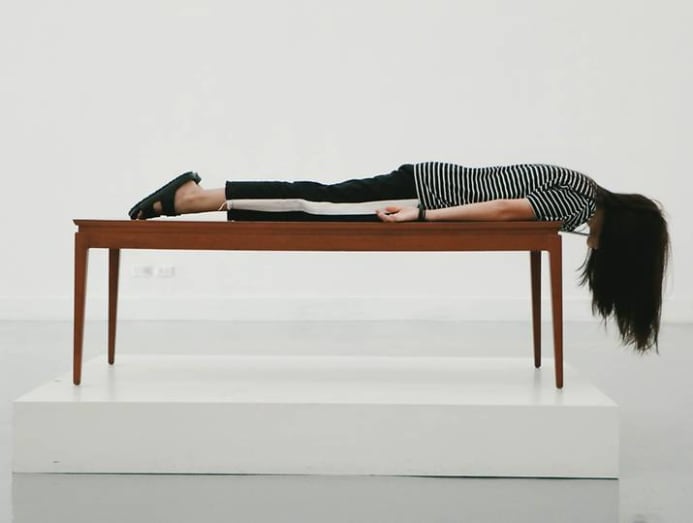
Interestingly, nearly one-half of insomniacs as well have obstructive sleep apnoea, a sleep disorder where your air catamenia is momentarily cutting off by collapsed throat muscles.
"If yous feel a persistent disability to autumn comatose and consistently have a good dark's rest, you should definitely see a medico," said Dr Han.
"This is particularly so if you experience daytime fatigue, and accept difficulty staying awake or doing routine tasks. It could be an underlying sign of a slumber status like insomnia or obstructive slumber apnea, which needs to be treated."
STEPS TO BETTER SLEEP
Singaporeans aren't taking the sleeplessness lying down. The survey constitute that when it comes to improving sleep, more a quarter of the respondents have a bedtime/wake-up schedule.
Meanwhile, 22 per cent cut downwards on caffeine consumption, 19 per cent turned to reading or soothing music, and one in 10 used slumber trackers or monitored their sleep. And while we're not sure watching TV helps with sleep, nearly a quarter did that.
"Watching TV is not recommended as the glare and blue light from the television is counteractive to falling asleep," said Dr Han. "In fact, it can make you more awake and alert, particularly if you're watching activeness or fast-paced shows."
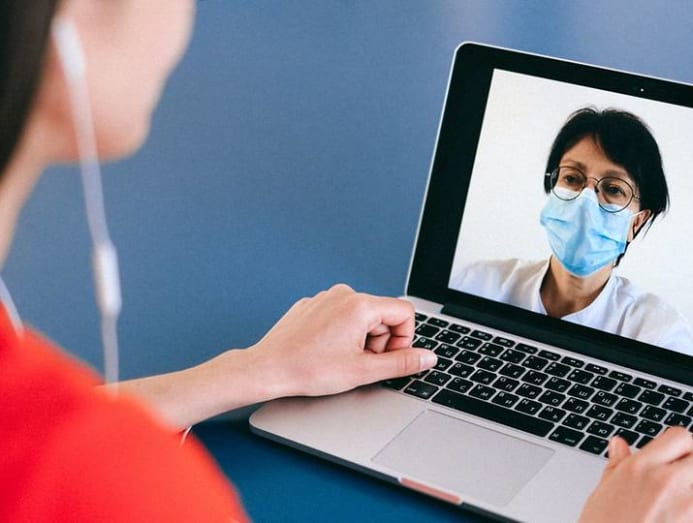
Some other move that many Singaporeans take made is to turn to telehealth for solutions to their sleep problems. Over half had their outset telehealth date during the pandemic. 4 in x were willing to requite telehealth a get for slumber-related concerns in the futurity from a slumber specialist.
READ: Can't slumber at night, dozing off in the day – it could point to bigger health issues
The need to tackle underlying sleep issues is also making Singaporeans more open to seeing a sleep specialist (41 per cent), and primary care doctor (39 per cent) in person.
With all that fourth dimension on our hands during the circuit billow period, it'southward no wonder that many Singaporeans turned to the Internet for the answers. In fact, search engines such as Google were the most-used resource past more than a quarter to learn about sleep and/or sleep treatments.
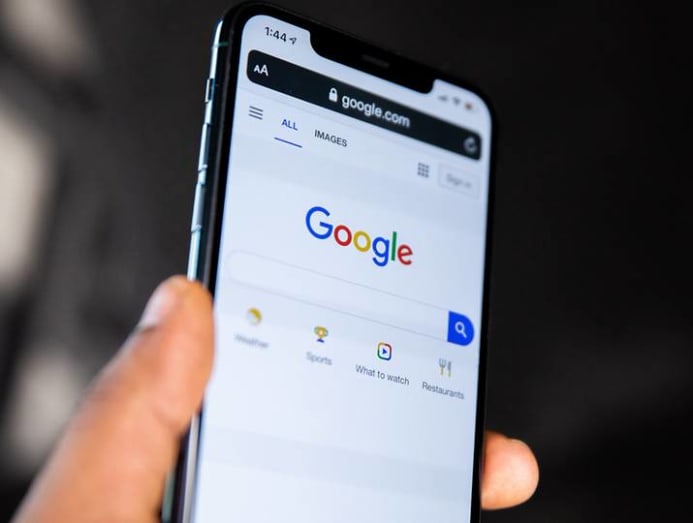
So what did we Google? The study showed that vii out of ten Googled sleep and/or treatments for the first time during the pandemic, sixty per cent visited online health websites such as WebMD, while near half used online quizzes.
Family members and online forums/social media platforms are the second- and third-most used resources respectively. The survey establish that 17 per cent of Singapore adults relied on their families, and xiv per cent used online forums/social media to learn more about their sleep bug.
Recent Searches
Trending Topics
Source: https://cnalifestyle.channelnewsasia.com/wellness/sleep-tips-insomnia-singapore-philips-global-survey-237866

0 Response to "Nearly 6 in 10 Singaporeans aren’t sleeping well because of COVID-19, study confirms"
Post a Comment